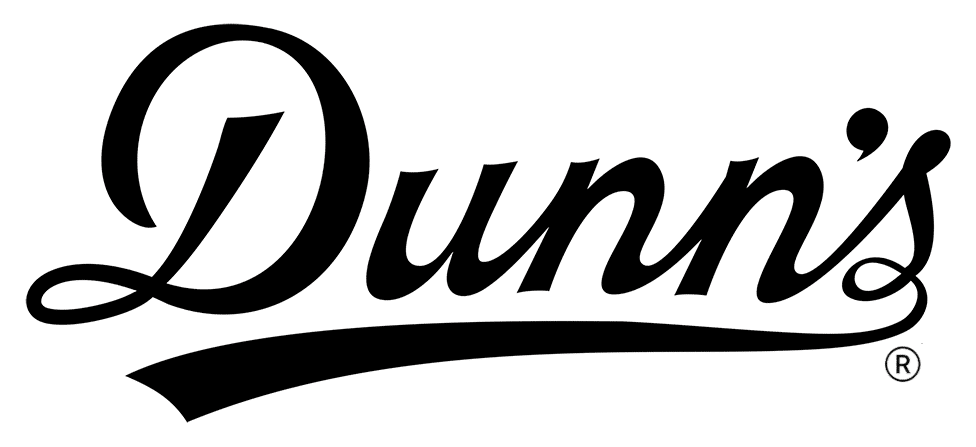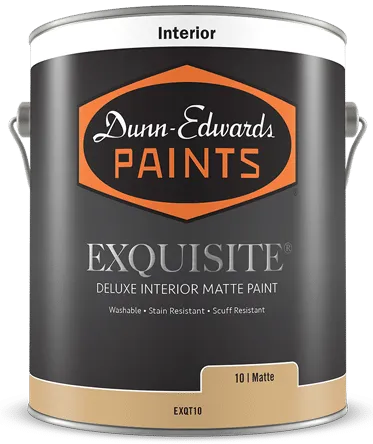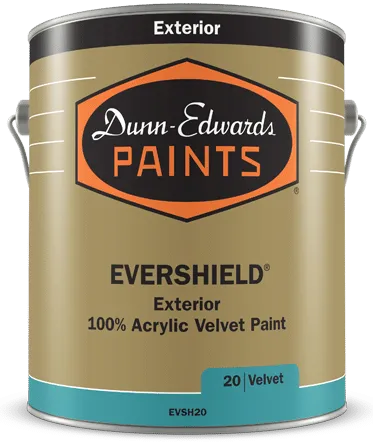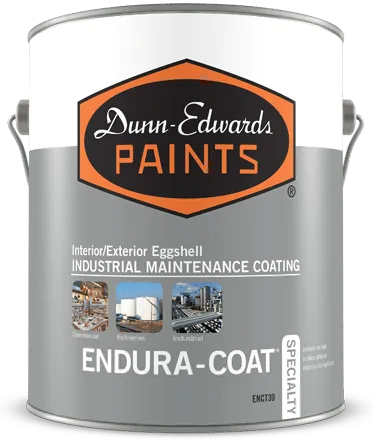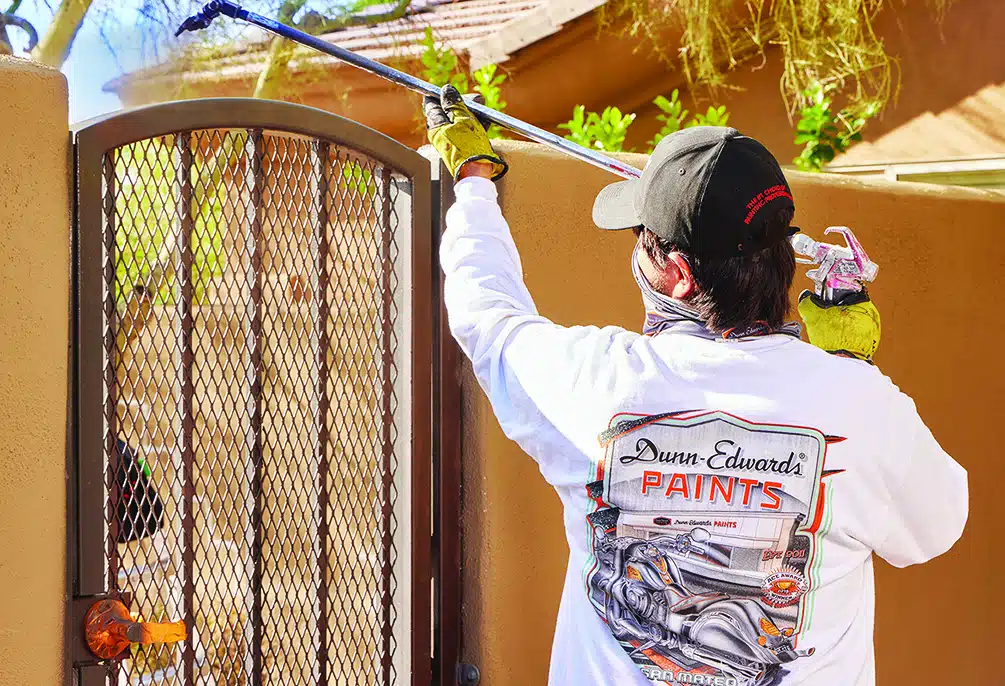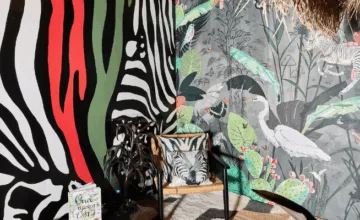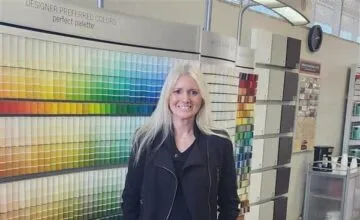Painting Through the Heat
07/14/2021 | davidcamacho |
Learn how to chill out and when to call it a day

With record-breaking temperatures and heat-related injuries and deaths throughout the Western US this season (with more extreme temperatures on the way), it's a good time to brush up on heat safety and painting best practices. Here are a few tips to help you and your team stay cool and safe.
Follow the rules
Under OSHA law, employers are responsible for protecting workers from extreme heat. This should include actions such as:
- Provide employees with water and/or hydrating drinks and access to rest and shade. In hot conditions, employers should encourage employees to drink at least one quart or four eight-ounce glasses of non-caffeinated drinks per hour.
- Allow new or returning employees to take more frequent breaks as they build a tolerance for working in the heat.
- Have a plan for heat-related emergencies.
- Train employees about actions they can take to prevent heat-related illness.
- Monitor employees for signs of illness.
For more details on protecting workers from heat-related illness, consult this NIOSH safety sheet and/or these Cal/OSHA guidelines. When planning ahead, don't look at temperature alone. The heat index takes both temperature and humidity into account. This OSHA chart provides guidance on the protective measures employers can take when faced with various heat indexes.
Source: https://www.osha.gov/heat/heat-index
Chase the shade
A popular technique for painters to optimize drying time when painting outside, chasing the shade is also a useful way to stay comfortable in the heat. Aim to arrive at the job site in the early morning hours, before the sun reaches its peak. Start painting in shaded areas and follow the shade as it moves throughout the day. Use caution with this technique: while the shade can feel ten to fifteen degrees cooler, it is the same temperature as non-shaded areas. By painting in the shade, you'll improve paint performance and avoid solar radiation (and the associated risks of prolonged sun exposure), but the heat-related risk stays the same.
Use cool tools
When it comes to hot weather and painting, technology is your friend. Check out some of these cool tools:
- High-performance paint: Evershield® is our best-in-class line of exterior 100% acrylic paints and one of the most resilient in climates where hot weather persists.
- Downloadable knowledge: check out this hot weather technical bulletin to ensure that your warm-weather paint job is a success. For more hot painting tips, check out this article as well. And be sure to always follow product-specific guidelines for optimal paint performance.
- Smart in-vest-ment: Zippkool makes high-visibility cooling vests and accessories that can lower the temperature inside them by up to 10 degrees and reduce humidity by as much as 40%.
- Chiller Body hat inserts are reusable and freezable to make sure that everyone on your team stays cool-headed throughout the day.
- Shade station: Extreme Canopy makes a variety of construction-tough canopies you can use to set up a shade and cooling station on jobs where employees won't have access to an air-conditioned space. Throw in an indestructible Yeti cooler filled with cold, electrolyte drinks or these Shield electrolyte popsicles by Sword Performance and you've got a well-chilled crew.
Take a long lunch
Consider adding a siesta to your schedule. The hottest times of the day are often 11 AM to 3 PM, so if you can take a long break and paint only during sunrise and sunset, you'll lessen some of the risks of working in the heat. While this is somewhat unconventional in the US, many countries, such as Spain, Greece, and Israel have a culture where it's not uncommon to take a long midday break. In fact, experts say that afternoon breaks and/or naps can help alleviate stress, strengthen the immune system, and even improve performance. Research on the topic is leading companies throughout the US and Japan to encourage midday napping so that employees are more productive and mentally sharp.
When in doubt, sit it out
When it comes to your painting business, safety should always come first. Taking unnecessary risks with your own and your employees' well-being never pays. If extreme heat is predicted, or if you or anyone on your team is experiencing symptoms, it's time to call it for the day. Watch out for any of these signs of heat-related illness:
- Heat cramps: muscle pains or spasms, especially around legs or the stomach area
- Heat exhaustion: pale or flushed skin, nausea, dizziness, headache, weakness, exhaustion
- Heatstroke: high body temperature, red skin, loss of consciousness, changes in level of responsiveness rapid and weak pulse, rapid and shallow breathing, vomiting, confusion, seizures
While there can be pressure to finish a painting job during peak season, the risks of hot weather are real. Make sure you're prepared to protect yourself and your employees above all else.
